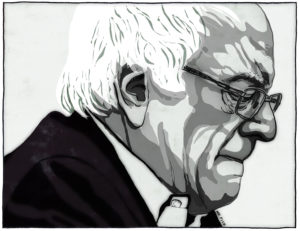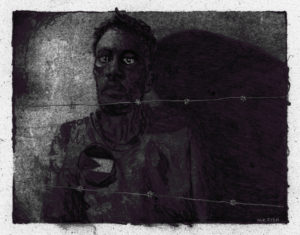Is the Sky Falling?
Three heavyweight writers have concluded that America is in slow and inevitable decline.
LOS ANGELES — If you walk into a Barnes & Noble store — yes, there are actual bookstores here — you are more or less surrounded by tables and shelves marked “Beach Reading.” But if you’re not going to the beach anytime soon, there are three very good books farther in the back. The titles are enough to make your head hurt:
— “The Unwinding: An Inner History of the New America” by George Packer.
— “The Great Degeneration: How Institutions Decay and Economies Die” by Niall Ferguson.
— “The End of Power: From Boardrooms to Battlefields and Churches to States, Why Being in Charge Isn’t What It Used to Be” by Moises Naim.
Heavy stuff. Three heavyweight writers concluding that America is in slow and inevitable decline. Or, at least they explain why someone like Edward Snowden can have more power than the director of the Central Intelligence Agency or the president of Brazil, or why a 12-year-old named James Black Jr. from Bedford-Stuyvesant in Brooklyn can defeat many of the best chess players in the world. And no, it isn’t just the Internet. Technology is just a tool to these guys, and they see deep and powerful tides changing people and, therefore, changing the world.
Let them tell it:
Ferguson: “Nearly all development economists agree that good institutions — legislatures, courts, administrative agencies — are crucial. When poor countries improve their institutions, economic growth soon accelerates. But what about rich countries? If poor countries can get rich by improving their institutions, is it not possible that rich countries can get poor by allowing their institutions to degenerate? I want to suggest that it is.”
Ferguson, a Harvard professor, goes on to tell us why the great pillars of our society — representative government, the free market, the rule of law and civil society — are slowly collapsing.
Packer: “No one can say when the unwinding began … when the coil that held Americans together in its secure and sometimes stifling grip first gave way.”
A New Yorker writer, Packer says that the United States unravels every two or three generations. Older folks saw the unwinding of a country of farms, factories, subdivisions and public schools — and “manners and morals.” What has replaced them? “Organized money.”
Naim: “Power is shifting — from large, stable armies to loose bands of insurgents, from corporate leviathans to nimble start-ups, from presidential palaces to public squares. It has become harder to wield power and easier to lose it, and the world is becoming less predictable as a result. As people become more prosperous and mobile, they are harder to control and more apt to question authority.
“Insurgents, fringe political parties, innovative start-ups, hackers, loosely organized activists, upstart citizen media outlets, leaderless young people in city squares, and charismatic individuals who seem to have ‘come from nowhere’ are shaking up the old order. Navies and police forces, television networks, traditional political parties, large banks — the large bureaucratic organizations that previously controlled their fields — are seeing their authority undermined.”
Naim, a former editor of Foreign Policy magazine, is my favorite. He sees three revolutions. The More Revolution — more guns, more people, more medicines, more computers, more preachers. Institutions are overwhelmed or outwitted. More than half the wars fought in the second half of the 20th century were by weaker powers, the ragged kind that depend on ragged weapons such as improvised explosive devices (IEDs).
The Mobility Revolution undermines old barriers keeping people in their places. The Mentality Revolution — of which the Internet is a part — is eroding traditional authority in both large and small countries, in churches, in commerce.
It is surprising that three writers of stature would come to so many of the same conclusions. Is it coincidence or are they really on to something?
© 2013 UNIVERSAL UCLICK
Your support matters…Independent journalism is under threat and overshadowed by heavily funded mainstream media.
You can help level the playing field. Become a member.
Your tax-deductible contribution keeps us digging beneath the headlines to give you thought-provoking, investigative reporting and analysis that unearths what's really happening- without compromise.
Give today to support our courageous, independent journalists.









You need to be a supporter to comment.
There are currently no responses to this article.
Be the first to respond.